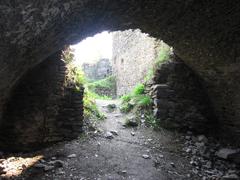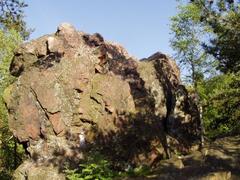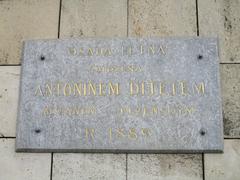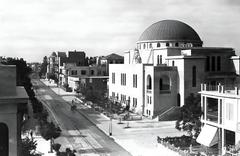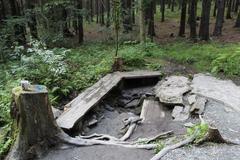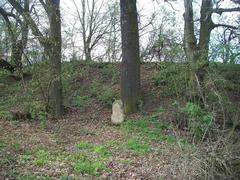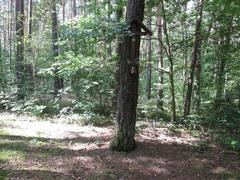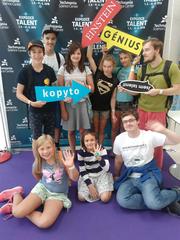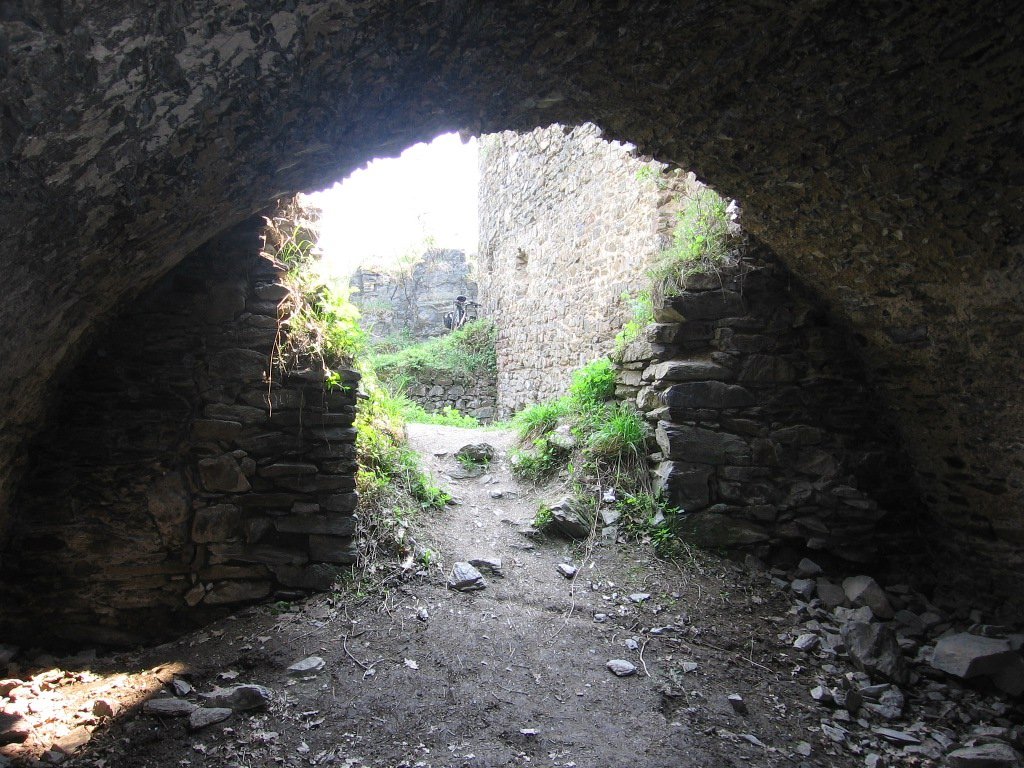
Comprehensive Guide to Visiting Buben, Plzeň, Czech Republic
Date: 24/07/2024
Introduction
Buben, a district in Plzeň, Czech Republic, is a treasure trove of historical and cultural significance. Nestled near major trade routes, Buben has played a pivotal role in the region’s medieval commerce and military logistics since it was first mentioned in records in the 13th century. Known for its rich tapestry of history, Buben has witnessed significant events from the Hussite Wars to the Industrial Revolution, and has continually evolved while preserving its heritage (Wikipedia). Visitors to Buben can explore an array of historical landmarks, including St. Bartholomew’s Cathedral, the Pilsner Urquell Brewery, and the Great Synagogue, each offering a unique glimpse into the past. Moreover, annual festivals like the Pilsen Liberation Festival and the International Folklore Festival CIOFF® Pilsen celebrate the vibrant culture and history of the region (Plzen Guide). This comprehensive guide aims to provide travelers with essential information on visiting hours, ticket prices, travel tips, and more to ensure an enriching experience in Buben.
Table of Contents
- Introduction
- Historical Background of Buben, Plzeň
- Key Historical Sites
- Historical Events and Festivals
- Visitor Information
- Travel Tips
- Frequently Asked Questions (FAQ)
- Conclusion
Historical Background of Buben, Plzeň
Early History and Foundation
Buben, a district in Plzeň, has a rich historical tapestry that dates back to the early medieval period. The area was first mentioned in historical records in the 13th century. The name “Buben” is believed to be derived from the Czech word for “drum,” possibly indicating a historical connection to military activities or local folklore.
Medieval Significance
During the Middle Ages, Buben was strategically significant due to its location near trade routes leading to major cities such as Nuremberg and Regensburg. This made it a vital point for commerce and military logistics. The district was part of the larger Plzeň region, which was granted a civic charter as a “Royal City” by King Wenceslaus II in 1295 (Wikipedia).
The Hussite Wars
Buben, like the rest of Plzeň, played a crucial role during the Hussite Wars in the early 15th century. Plzeň was a stronghold of Catholic resistance against the Hussites, who were followers of the reformer Jan Hus. The city was besieged multiple times but never fell to the Hussites, thanks to its robust fortifications and the resilience of its inhabitants (Wikipedia).
Renaissance and Baroque Periods
The Renaissance period brought architectural and cultural advancements to Buben. The district saw the construction of several notable buildings, including churches and merchant houses. The Baroque period further enriched the architectural landscape with ornate designs and public spaces that reflected the prosperity of the region.
Industrial Revolution
The 19th century marked a significant transformation for Buben with the advent of the Industrial Revolution. Plzeň became an industrial hub, and Buben was no exception. The district saw the establishment of factories and workshops, contributing to the economic boom of the region. This period also saw the founding of the Pilsner Urquell Brewery in 1842, which revolutionized beer production and made Plzeň famous worldwide (Wikipedia).
World War II and Liberation
Buben, like the rest of Plzeň, was heavily impacted during World War II. The city was occupied by Nazi Germany and became a significant producer of German weapons. However, on May 6, 1945, Plzeň was liberated by General George Patton’s 3rd Army, marking a significant moment in the war’s conclusion. This event is annually commemorated through the Pilsen Liberation Festival (Wonderful Wanderings).
Post-War and Communist Era
After World War II, Buben, along with the rest of Czechoslovakia, fell under Communist rule in 1948. This period was marked by nationalization of private property and suppression of political dissent. Despite these challenges, Buben continued to develop, with new residential areas and public amenities being constructed.
Modern Era and Cultural Revival
The Velvet Revolution of 1989 brought an end to Communist rule in Czechoslovakia, leading to a period of cultural and economic revival. Buben has since seen significant development, with efforts to preserve its historical heritage while embracing modernity. The district is now a vibrant part of Plzeň, known for its cultural events, historical sites, and community spirit.
Key Historical Sites
St. Bartholomew’s Cathedral
One of the most significant historical landmarks in Plzeň is St. Bartholomew’s Cathedral, located in the Republic Square. The Gothic cathedral, with its towering spire, is a symbol of the city’s medieval heritage. It was here that many historical events, including the Hussite Wars, left their mark (Plzen Guide).
Pilsner Urquell Brewery
The Pilsner Urquell Brewery, founded in 1842, is another key historical site. It revolutionized beer production with its bottom-fermenting yeast and pale malt, setting a new standard for brewing. The brewery offers tours that take visitors through its history and brewing process (The Crazy Tourist).
Great Synagogue
The Great Synagogue in Plzeň is the second largest in Europe and the third largest in the world. Built in the late 19th century, it stands as a testament to the rich Jewish heritage of the region. The synagogue has survived wars and political upheavals, and today it serves as a cultural and historical monument (Plzen Guide).
Historical Events and Festivals
Pilsen Liberation Festival
The Pilsen Liberation Festival is an annual event commemorating the liberation of Plzeň by the US Army in 1945. The festival features parades, historical reenactments, and open-air concerts, attracting thousands of visitors each year (Plzen Guide).
International Folklore Festival CIOFF® Pilsen
Since 1997, the International Folklore Festival CIOFF® Pilsen has been a meeting place for lovers of folklore and traditional folk art. The festival features performances by groups from the Czech Republic and abroad, celebrating the cultural diversity and heritage of the region (Plzen Guide).
Visitor Information
Visiting Hours and Tickets
Visitors can explore Buben and its historical sites year-round. However, it’s advisable to check the specific visiting hours and ticket prices for each site in advance. Popular attractions like St. Bartholomew’s Cathedral and the Pilsner Urquell Brewery have guided tours that may require prior booking.
Nearby Attractions
In addition to the historical sites within Buben, visitors can explore nearby attractions such as the Plzeň Zoo and the Techmania Science Center. These sites offer a varied experience, making Plzeň an ideal destination for all age groups.
Accessibility
Buben is well-connected by public transportation, making it easily accessible from other parts of Plzeň. The district offers a range of accommodation options, from luxury hotels to budget-friendly hostels, ensuring a comfortable stay for all visitors.
Travel Tips
Best Time to Visit
The best time to visit Buben and Plzeň is during the spring and summer months when the weather is pleasant, and numerous cultural events take place. The Pilsen Liberation Festival in May and the International Folklore Festival in June are particularly noteworthy.
Local Cuisine
Visitors should not miss the opportunity to taste traditional Czech cuisine. Local specialties include Pilsner beer, of course, as well as dishes like svíčková (marinated beef) and trdelník (a sweet pastry). Many local pubs and restaurants offer these delicacies, providing a true taste of the region’s culinary heritage (Plzen Guide).
Frequently Asked Questions (FAQ)
What are the visiting hours for Buben? Visiting hours vary by site. It is advisable to check the official websites or local guides for the most accurate information.
How much are tickets to Buben? Ticket prices vary depending on the attractions. Popular sites like St. Bartholomew’s Cathedral and the Pilsner Urquell Brewery may have specific rates and offer guided tours.
What are the best times to visit Buben? Spring and summer are ideal times to visit, especially during the Pilsen Liberation Festival in May and the International Folklore Festival in June.
Conclusion
Buben, Plzeň, with its rich historical background and vibrant cultural scene, offers a unique blend of the past and present. From its medieval roots to its modern-day significance, the district is a testament to the resilience and cultural richness of the region. Whether you’re a history buff, a beer enthusiast, or simply looking to explore a unique part of the Czech Republic, Buben has something to offer for everyone.
References
- Plzeň, Wikipedia https://en.wikipedia.org/wiki/Plzeň
- Plzen Guide, Pilsen Events Calendar https://plzenguide.com/pilsen-events-calendar.html
- Wonderful Wanderings, Czechia https://wonderfulwanderings.com/czechia/plzen/
